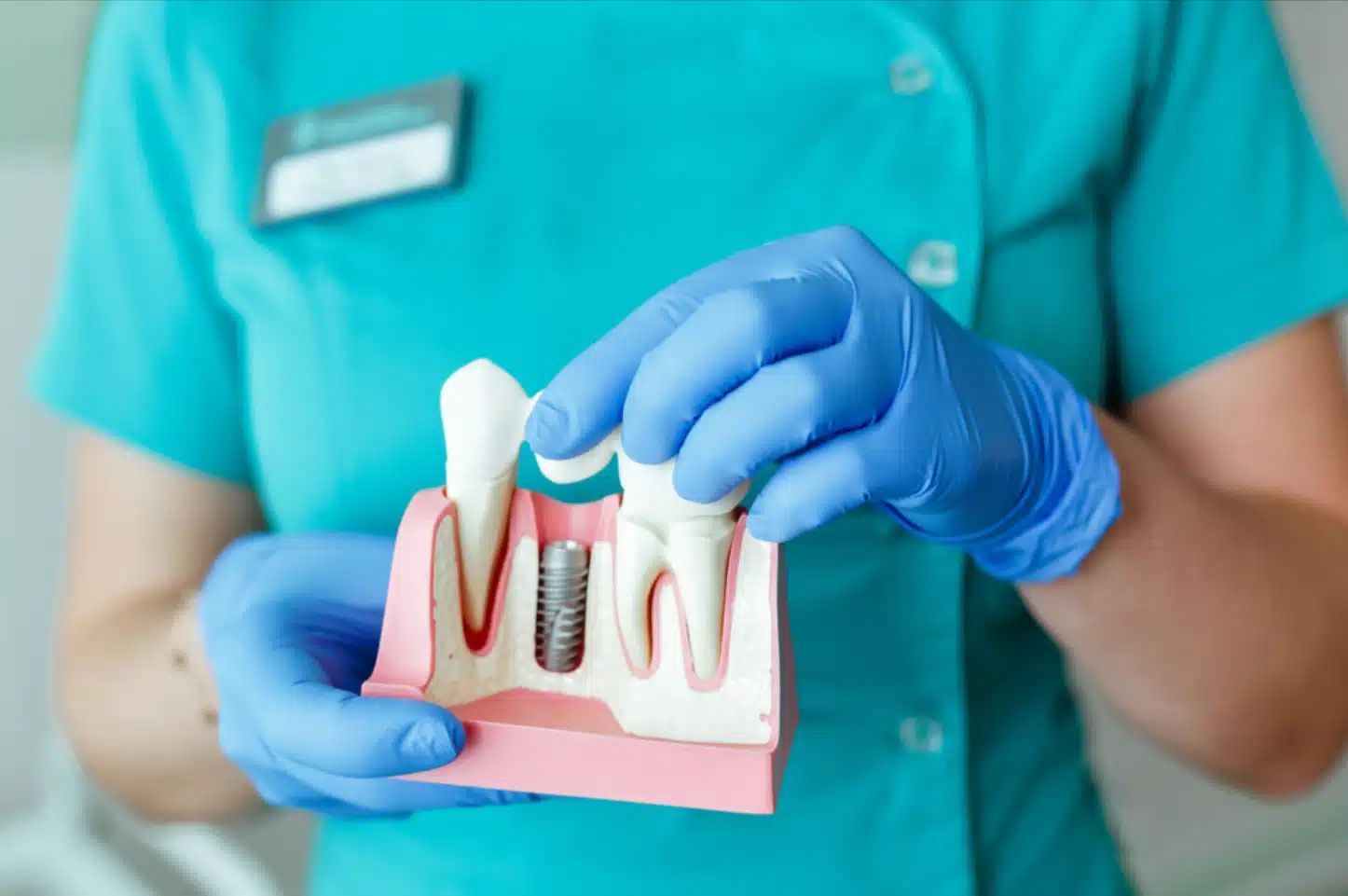Dental Implants: Restoring Your Smile and Confidence
Dental implants have become a popular solution for individuals seeking a permanent and natural-looking replacement for missing teeth. If you’re curious about dental implants and want to know more, you’ve come to the right place. In this article, we will explore what dental implants are, how they work, their benefits, the procedure involved, and essential aftercare instructions. By the end, you’ll have a thorough understanding of dental implants and why they may be the ideal choice for you.
Table of Contents
Introduction
Missing teeth can impact your self-confidence and oral health. Dental implants offer a long-lasting and natural-looking solution to restore your smile. In this article, we will delve into the world of dental implants, exploring their benefits, procedure, and aftercare.
What Are Dental Implants?
Dental implants are titanium posts surgically placed into your jawbone to replace the roots of missing teeth. These posts act as anchors for artificial teeth, such as crowns, bridges, or dentures. Dental implants provide a sturdy foundation, closely mimicking the function and appearance of natural teeth.
How Do Dental Implants Work?
Dental implants work by integrating with your jawbone through a process called osseointegration. This fusion creates a strong and durable base for the artificial tooth or teeth to be mounted onto the implant. The result is a secure and stable restoration that allows you to eat, speak, and smile with confidence.
Advantages of Dental Implants
Dental implants offer numerous advantages over traditional tooth replacement options. Some key benefits include:
Improved aesthetics and natural appearance
Enhanced speech and ability to pronounce words clearly
Restored ability to bite and chew comfortably
Preservation of jawbone structure
Long-term durability and reliability
Convenience and easy maintenance
The Dental Implant Procedure
The dental implant procedure typically involves several stages, including:
Preparing for Dental Implants
During the initial consultation, your dentist will evaluate your oral health and determine if you’re a suitable candidate for dental implants. They will take X-rays and impressions of your teeth to create a personalized treatment plan.
The Implant Placement Process
In the first surgical stage, the dental implant is placed into your jawbone beneath the gum line. Over the next few months, the implant integrates with the surrounding bone through osseointegration, creating a strong foundation.
Recovery and Aftercare

After the implant placement, a healing period is necessary for the implant to fuse with the jawbone. Your dentist will provide specific aftercare instructions, including proper oral hygiene practices and dietary restrictions, to ensure successful healing and implant integration.
Potential Risks and Complications
Like any surgical procedure, dental implant placement carries some risks. These risks may include infection, damage to surrounding structures, nerve damage, and implant failure. However, with proper planning, skilled professionals, and diligent aftercare, these risks can be minimized.
Dental Implants vs. Dentures
Dental implants and dentures are both tooth replacement options, but they differ in terms of stability, comfort, and longevity. While dentures are removable and may require adhesives, dental implants are permanent and offer superior stability and function. Dental implants also prevent bone loss, whereas dentures do not stimulate the jawbone.
Maintaining Dental Implants
Proper care and maintenance are crucial for the longevity and success of your dental implants. Some essential tips for maintaining dental implants include:
Brushing and flossing regularly
Using a soft-bristled toothbrush and non-abrasive toothpaste
Avoiding chewing on hard objects or using your teeth as tools
Scheduling regular dental check-ups and cleanings
Not smoking or using tobacco products
Dental Implants: A Worthwhile Investment
Although dental implants may have a higher initial cost compared to other tooth replacement options, they are a worthwhile investment in the long run. Dental implants offer superior aesthetics, functionality, and durability, providing a significant improvement in your quality of life and oral health.
FAQ
Are dental implants painful?
The dental implant procedure is typically performed under local anesthesia, ensuring that you experience little to no discomfort during the process. However, mild soreness and swelling may occur after the surgery, which can be managed with prescribed medications.
How long do dental implants last?
Dental implants have an impressive success rate and can last a lifetime with proper care and maintenance. Regular dental visits, good oral hygiene, and a healthy lifestyle contribute to their longevity.
Can anyone get dental implants?
Most individuals with good overall health and adequate jawbone density are suitable candidates for dental implants. However, certain medical conditions, such as uncontrolled diabetes or active gum disease, may affect the success of the procedure.
Is the dental implant procedure time-consuming?
The duration of the dental implant procedure varies depending on individual cases. While some cases may require several months for complete implant integration, others may be eligible for immediate loading implants that reduce the overall treatment time.
Can dental implants be done in a single day?
Yes, in some cases, immediate loading implants or same-day implants can be placed. This approach allows for the placement of a temporary tooth restoration on the same day as the implant surgery, minimizing the waiting period for a fully functional smile.



